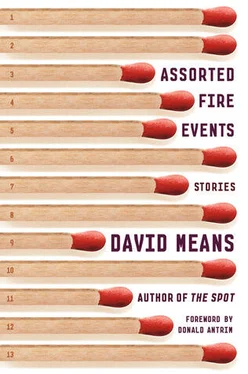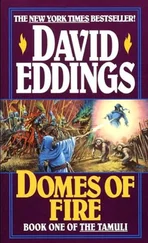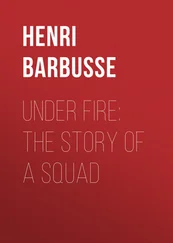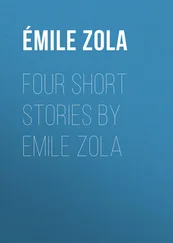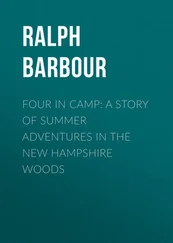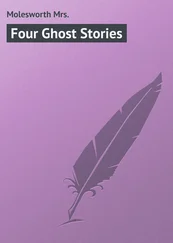David Means - Assorted Fire Events - Stories
Здесь есть возможность читать онлайн «David Means - Assorted Fire Events - Stories» весь текст электронной книги совершенно бесплатно (целиком полную версию без сокращений). В некоторых случаях можно слушать аудио, скачать через торрент в формате fb2 и присутствует краткое содержание. Год выпуска: 2012, Издательство: Faber & Faber, Жанр: Современная проза, на английском языке. Описание произведения, (предисловие) а так же отзывы посетителей доступны на портале библиотеки ЛибКат.
- Название:Assorted Fire Events: Stories
- Автор:
- Издательство:Faber & Faber
- Жанр:
- Год:2012
- ISBN:нет данных
- Рейтинг книги:4 / 5. Голосов: 1
-
Избранное:Добавить в избранное
- Отзывы:
-
Ваша оценка:
- 80
- 1
- 2
- 3
- 4
- 5
Assorted Fire Events: Stories: краткое содержание, описание и аннотация
Предлагаем к чтению аннотацию, описание, краткое содержание или предисловие (зависит от того, что написал сам автор книги «Assorted Fire Events: Stories»). Если вы не нашли необходимую информацию о книге — напишите в комментариях, мы постараемся отыскать её.
won a Los Angeles Times Book Prize, was nominated for a National Book Critics Circle Award, and received tremendous critical praise. Ranging across America, taking in a breathtaking array of voices and experiences, this story collection now stands as one of the finest of our time.
Assorted Fire Events: Stories — читать онлайн бесплатно полную книгу (весь текст) целиком
Ниже представлен текст книги, разбитый по страницам. Система сохранения места последней прочитанной страницы, позволяет с удобством читать онлайн бесплатно книгу «Assorted Fire Events: Stories», без необходимости каждый раз заново искать на чём Вы остановились. Поставьте закладку, и сможете в любой момент перейти на страницу, на которой закончили чтение.
Интервал:
Закладка:
By the time the train got there he was gone, either a skull vacant of chemical and electrical activity, simple as that, or a soul rising up through limestone and shale into the twilight sky: he was dead. When he died, shortly after that final kick, going deep into the shock that precedes systems shutting down, the train was still in New Jersey, heaving and bucking along the backside of Newark Airport, close enough to the runways to give the engineer a fine view of a TWA flight to LA roaring into the night sky, that morose exchange of warning lights going from one wing to another marking the wingspan. A kinship the engineer felt with all machines was provoked in him as he watched it, leaning down, craning his neck to see out the narrow cab windows. A tail of heat, bending stars, poured from the engines, curving off into the violet light of the refineries and suburbs as the tracks curved away and the train cut its path through the wetlands; it was later, perhaps in some recollection of that night, the body, another drunken stumblebum finished off by his train — it was his third such incident in two years — later that he would also remember the sight of that plane taking off; not that he made a connection between the two events that night, but he felt somehow that there was one between the plane and the death of the man whose body had wedged beneath what was once a cowcatcher and now was just a square-cut chink of metal frame meant to blunt the impact if the train did come into contact with anything. Because the truth is this engineer was a good soul who still wedded a romantic love of trains and what they used to mean — stretching their vast rails across this great continent — with a particular sense of the demands of the job. He had an ability to take the ever-increasing frequency of bodies lying across the tracks and turn it into a philosophical precept of sorts: the world was failing, spinning into something bad and evil, away from what once was firm and hard and, of course, united with steel and wood and broken stone — clean, white right-of-ways, timetables seldom broken. The full weight and burden of the death lay on the engineer’s shoulders because he did not know that the man had been dead for a good twenty-five minutes before his engine sliced the body in half; of course he had gone through the procedure of stopping the train, applying the brakes, radioing to Central with the information, using his recently installed cellular phone to dial up the Haverstraw police, and so forth, but none of this alleviated the weight of the death, which he carried with him for the next several weeks not as a debilitating grief or a sense of guilt but just as a bad kind of feeling, a bothersome notion, that somehow through some miracle or grace he might have anticipated the body in the tunnel, known by some small sign — perhaps the plane lifting off — that a man would be in the tunnel, and therefore saved a life. In the late-afternoon light, as he drank his coffee at his kitchen table and prepared himself for the shift ahead, he thought of the man whose body had had to be pried out from under the cab by rookie police whose eyes — glassy and wide — had betrayed their shock at the sight, a torso barely resembling a human figure; by taking a spiritual triangulation from those faces, lit by emergency arc lamps and flashlight beams, from his perch on the beat-up Naugahyde cab seat (he refused to come down from there, refused to participate in the cleaning away of the body), he had known and felt the damage his beast of a machine had done, leaving a smear of blood and guts. And there, one morning at the kitchen table, in his house down along the river beneath the stone quarry, within walking distance of this latest disaster — with his wife in the other room singing to the baby and outside, down a bank of hackweed and brambles, the Hudson sheet-metal calm — there he sat trying hard not to hear all that music that was being made and had been made by his machine and the lives living around him, and the Brahms he had never heard before but was now somehow hearing softly, that Andante finally reappearing again but now as a solemn chorale. Evening was falling softly over the Hudson Valley. Fall was nearing. The air was cool and clear. His child was asleep. His wife came out in her jeans and T-shirt and kissed his forehead softly, holding her lips there, knowing what he was thinking about because he had been thinking about it for two weeks now. The weight of that death. But it was time for work, her kiss said. Softly, he returned the kiss. He put on his jacket, went to look one last time at the baby, to pass his thumb over her eyelids. He walked up the cinderblock steps to his truck feeling the weight lift. Evening was falling sweetly between the trees. There was the smell of the water, earth, sky. A barge rested in the river, waiting for stone. Down the street kids rode their bikes around in circles. It was a good job even if things weren’t going the way they should in the world. It was a good, good job.
COITUS
THIS TAKES place on a Wednesday afternoon on the tenth of July on a cooler than usual day of a long dry hot summer along the Eastern Seaboard during coitus between Bob Sampson and Ellen Davison-Simms, who are lying together in light that seems to billow with the rise and fall of the curtains, which during those first moments (before entry) have risen and fallen several times, giving form to a front of Canadian air, cool and dry, bringing relief to two long weeks of record heat. The house in which our two lovers find themselves — as they say — is full of light, bursting with it, clean and white and not so large or small but grand in a way, attaching itself as it does to the larger estate it was once a part of; it’s the so-called guest house, but it is larger than the houses farther up the hill, away from the river, and now with the hedges grown up, the drooping roses on rotting trellises, it stands on its own. The entry part is over — he’s in her — and the rise and fall of the breeze against his body — he’s on top — makes his buttocks feel chalky, like rock, firm and hard, eternal, holding some coolness the earth requires, yet there is that line of his suntan that gives him the feeling — at least a vague sensation — of being a man of two sides, one warm and the other cold, hidden by Speedos and boxer shorts and tennis gear. But that’s another story because by the second or third thrust (is it a thrust or a wave, a movement confined by certain latitudes?) the curtains lift again, billow, fold, his head turns slightly to see them, eyes almost closed, as white folds of light and space and air; curtains that his wife made for the old house, their first together, laying the long sheets of cotton in the living room to be cut down to size — facing back towards Ellen, chin touching chin a moment, hummmm easing up from her throat, the nip of her throat, he feels, vibrating — from off, off, the soft moaning of a boat horn, a tug, drawing a barge up the river to the limestone quarries in Haverstraw, two warnings of some sort, he hears them …
… brings to mind for no good reason Tom’s death — his brother in upper Michigan spilling a canoe along the Two Hearted; a bad paddling river, lots of deadfall that spring, water ice-cold, the cold black branches holding him under — it was at this great cost that Bob Sampson purchased the depth of his eyes; Ellen saw that, it gave his eyes a great attractive quality. They had met in that traditional bump-together way you see in bad movies, or even some good ones, where fate has actually transpired to physically nudge two souls together — or so you’re supposed to think, at least, knowing damn well it’s mostly luck and nothing else, what else would explain the quality of Bob’s eyes having cost so much? You never get that in movies, the cost of great beauty; Ellen knew it when she saw it, met his eyes, in line; who wouldn’t know it? Bob has great eyes. There is that deep pooling quality; they stay on you just long enough and then move away; he doesn’t stare, but he takes some time with each glance, or at least he had, standing there, turning to order a double cappuccino with extra cinnamon — a man who likes cinnamon, she thought; she was wearing her lime-green skirt, pleated, tight against the sides of her thighs; she owned a clothing store and knew everybody in town but for one reason or another she hadn’t met Bob, who was moving his business into his home, or setting up a home office, whatever they called it; she later recalled his wife; she knew her by first name, Cindy, a tall willowy woman who came in often and preferred long and black and somewhat draping dresses … we’ll leave her out; the arch of himself into Ellen, that boat, the boat horn, her nub, the nub of her chin — pink and white light, cool, but nonetheless a thin moustache of sweat forming just above the line of his upper lip;
Читать дальшеИнтервал:
Закладка:
Похожие книги на «Assorted Fire Events: Stories»
Представляем Вашему вниманию похожие книги на «Assorted Fire Events: Stories» списком для выбора. Мы отобрали схожую по названию и смыслу литературу в надежде предоставить читателям больше вариантов отыскать новые, интересные, ещё непрочитанные произведения.
Обсуждение, отзывы о книге «Assorted Fire Events: Stories» и просто собственные мнения читателей. Оставьте ваши комментарии, напишите, что Вы думаете о произведении, его смысле или главных героях. Укажите что конкретно понравилось, а что нет, и почему Вы так считаете.
